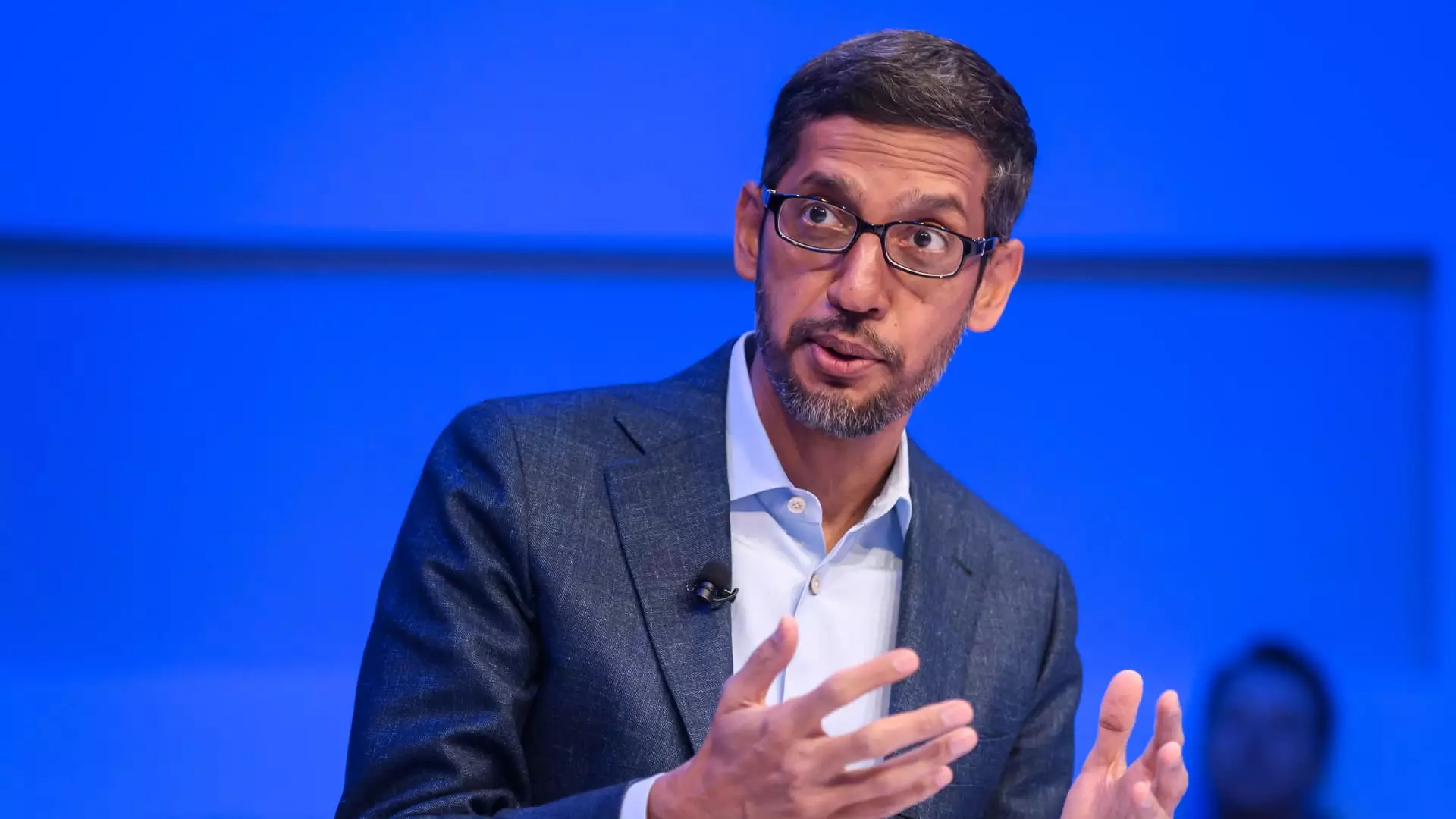As the technological landscape continues to evolve at an unprecedented pace, Google finds itself at a pivotal juncture. CEO Sundar Pichai recently conveyed the urgency of the upcoming year, 2025, during a strategy meeting on December 18, emphasizing that “the stakes are high.” This assertion highlights the combination of fierce competition, regulatory scrutiny, and the rapid advancement of artificial intelligence (AI) technologies that the tech giant must navigate in the coming years.
The leaders at Google, while gathering in a festive atmosphere with holiday sweaters, reassured employees about the company’s direction amid palpable pressure. The overarching sentiment was clear: Google is under the spotlight like never before, and decisive action is required to capitalize on emerging technologies and rectify user pain points. Pichai’s commitment to urgency reflects not only the reality of the moment but also the shifting dynamics resulting from new technological entrants that threaten Google’s stronghold.
The tech behemoth has faced an avalanche of challenges over the past year, highlighting vulnerabilities that have arisen since its market debut two decades ago. Although Google has excelled in areas like cloud services and search advertising, threats loom large as competition intensifies across its core business segments. Concurrently, internal struggles surrounding company culture and Pichai’s strategic vision have compounded this pressure.
Regulatory concerns have become an omnipresent shadow over Google’s operations. A recent federal ruling deemed Google a monopolistic giant within the search market, while calls for divestment of its Chrome browser functionality added to a growing list of regulatory grapples. As governments worldwide grow increasingly concerned about the power wielded by tech companies, it’s clear that Google must adapt its business strategies to not only comply with an evolving legal landscape but also regain public trust.
Pichai acknowledged the global scrutiny facing the firm, noting that the size and success of Google inevitably attract greater oversight. He emphasized the necessity to stay focused and avoid distractions, pointing towards a broader tech industry trend where companies impact societal structures at scale.
One of the most significant challenges stems from the rise of advances in generative AI technologies, which have opened new pathways for information access and service delivery. OpenAI’s ChatGPT emerged in late 2022 and quickly sparked investor enthusiasm, resulting in a staggering valuation of $157 billion. The landscape is continually shifting; other competitors, like Perplexity, are also trying to capture market share with their AI search offerings.
In this environment, Google is investing substantially in its own AI initiatives, particularly through the development of its Gemini application. Pichai articulated a vision where Gemini plays a central role in the company’s strategy, primarily as a tool to compete against the emerging players. He set a clear objective: scaling Gemini for consumer access is essential to establish Google’s leadership.
Google’s ambition isn’t merely about maintaining market share; it’s about evolving in a way that reinvigorates its brand identity as an innovative leader. According to Pichai, “With the Gemini app, there is strong momentum,” but he cautioned that the company must expedite efforts to secure its footing in the competitive landscape.
During the meeting, DeepMind co-founder Demis Hassabis elaborated on the ambitious plans for the Gemini app, depicting a future where Google’s offerings will seamlessly integrate across various devices and user experiences. The potential for a universal assistant, currently termed Project Astra, suggests Google’s interest in leading the charge towards an ecosystem that connects diverse functionalities into a cohesive user journey.
Hassabis addressed a critical concern raised by employees regarding pricing strategies for AI products amidst growing competition. While Google currently offers a $20 monthly subscription for advanced functions, the prospect of adopting a tiered pricing model remains uncertain. This approach is in contrast to some competitors who have introduced higher subscription levels, effectively making Google’s offerings seem more accessible for a broader audience.
As Google grapples with these pressures, Pichai’s recurring message of staying ‘scrappy’ resonates deeply within the organization. Reflecting on the company’s origins, he drew inspiration from Google founders Larry Page and Sergey Brin, who built the foundation of the tech giant through resourcefulness and creativity. Pichai emphasized that constraints can often spark innovation, urging teams to think differently in their approach to challenges.
In closing, Google stands at a crossroads, poised to redefine its role in a rapidly changing world. The stakes are undeniably high as competition, regulation, and the imperative of innovation converge. With a blend of urgency, creativity, and a clear vision for AI, the company must harness these elements to meet the expectations of its workforce, the demands of the market, and the scrutiny of regulators, all while striving to remain a titan in the tech landscape.


Leave a Reply
You must be logged in to post a comment.